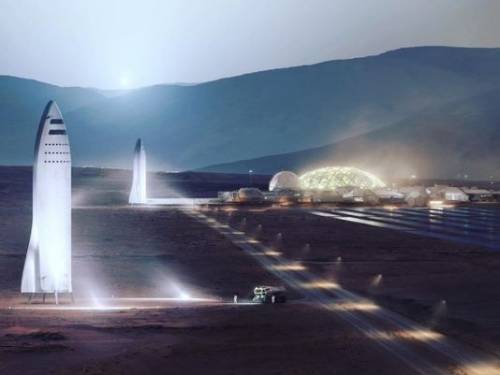 Close Topic Options
Close Topic OptionsSpaceX - Private Space Company - Page 10 of 13
The fact that this was a successful launch - Page 10 - Sciences, Education, Art, Writing, UFO - Posted: 6th Feb, 2018 - 11:06pm
SpaceX - Private Space Company - Page 10
Daishain, I don't even think an organisation needs to be set up to incentivise cleaning that junk. The cost of reaching orbit means all resources already up there have greater value than they do on earth. The challenge is recycling and manufacturing, or even maintenance while up there. That'll also enable asteroid mining as an economical venture. A shorter-term solution currently being explored (And held back by actual policy-makers being slow) is to set up a governing body to charge rent in Low Earth Orbit. Geostationary Earth Orbit already has International Telecommunications Union in charge and slots are divided evenly across nations - some nations sell them on to others.
Back on the topic of SpaceX's comsats, it's a huge risk as there's already plenty of competition and the unavoidable delay thanks to the speed of light of about 10ms. That's a long time when it comes to handshaking in communications. Compounded with electronic errors caused by the radiation in space, well those engineers have plenty of work cut out for them. It's certainly possible, otherwise Musk wouldn't go for it.
SpaceX - Private Space Company UFO & Writing Art Education Sciences
SpaceX's Elon Musk proposes rocket for moon base, Mars city. In Australia on Friday, SpaceX CEO Elon Musk updated his design for a rocket and spaceship that could fly people to the moon or Mars,. Source 9l
Image from SpaceX.

SpaceX - Private Space Company (Hover)
Page 10 Company Space Private SpaceX
The design and ambition they have is great. Imagine a ship that transport people from one city to another in a hour. A base on the moon and even on Mars with a reusable space faring and planet travel. That will change the travel industry big time real soon.
Company Space Private SpaceX
You, might one day see countries like India, and China sending people to both the moon and Mars. Both countries have already had successful launches of satellites into space. It is no secret that they both have aspirations in relation to exploring both of these areas.
I'm hoping Australia, will one day be launching there own satellites, into orbit.
SpaceX - Private Space Company
The commercializations of space tech has made it so mainstream that we are seeing huge savings in delivery, maintenance and expansion of our presence outside Earths atmosphere. We need to start developing colonies off planet as we are vulnerable will all of humankind in a single globe. We also can develop our tech far faster, when motivated by exploration and expansion as a goal.
SpaceX Private Space Company - Page 10
SpaceX launches Falcon Heavy rocket, lands two side boosters simultaneously on the ground
Tuesday, February 6, 2018, 1:24 PM ET
In a historic first, SpaceX launched its long-awaited Falcon Heavy rocket Tuesday and landed its two side boosters on the ground — a feat the Hawthorne space company hopes will lead to increased commercial and national security missions. Ref. Source 5p.
SpaceX Private Space Company Sciences Education Art Writing & UFO - Page 10
The fact that this was a successful launch and two successful recoveries by relanding the two boosters shows how far we have come in the private sector. I think this says a lot towards the private sector heading into space and moving us forward in science.
 TOPIC: SpaceX - Private Space Company
TOPIC: SpaceX - Private Space Company